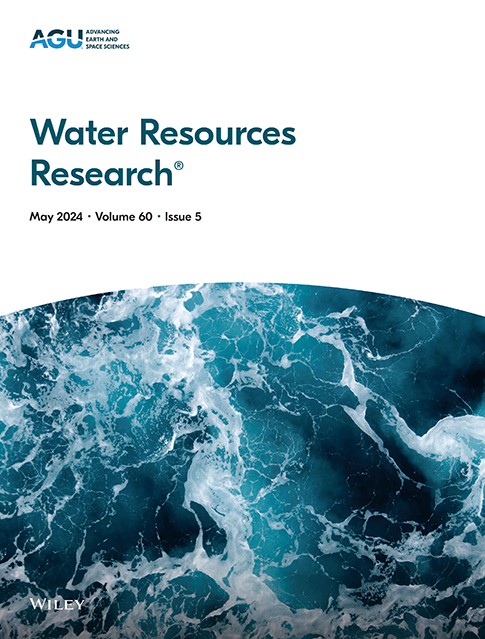Framework for Identification of Groundwater Contamination Source Based on Conditional Generative Adversarial Networks and Optimization Methods
IF 5
1区 地球科学
Q2 ENVIRONMENTAL SCIENCES
引用次数: 0
Abstract
Accurate groundwater contamination source identification (GCSI) is critical for ensuring water resource security and management. However, solving the GCSI problem often faces challenges of insufficient identification accuracy and difficulty in quantifying uncertainty. To address these issues, we propose a framework based on a bidirectional mapping strategy, optimization methods, and an adaptive enhancement iterative process to simultaneously identify contamination source characteristics and model parameters. Specifically, the framework directly models the probability distribution of the variables to be identified based on a conditional generative adversarial network (CGAN), generates diverse samples, and thus achieves the quantification of uncertainty. Additionally, the innovative integration of CGAN and optimization methods enables the optimization algorithm to utilize its strong search capability to further refine the identification results. Application results on a hypothetical case show that the framework outperforms the use of optimization methods alone in terms of accuracy, efficiency, and reliability. The proposed framework enhances identification accuracy and explicitly quantifies uncertainty, providing a new solution for GCSI challenges.基于条件生成对抗网络的地下水污染源识别框架及优化方法
准确的地下水污染源识别是保障水资源安全和水资源管理的关键。然而,解决GCSI问题往往面临识别精度不足和不确定性难以量化的挑战。为了解决这些问题,我们提出了一个基于双向映射策略、优化方法和自适应增强迭代过程的框架,以同时识别污染源特征和模型参数。具体而言,该框架直接基于条件生成对抗网络(CGAN)对待识别变量的概率分布进行建模,生成不同的样本,从而实现不确定性的量化。此外,CGAN与优化方法的创新融合使优化算法能够利用其强大的搜索能力进一步细化识别结果。在一个假设案例中的应用结果表明,该框架在精度、效率和可靠性方面优于单独使用优化方法。该框架提高了识别精度,明确量化了不确定性,为GCSI挑战提供了新的解决方案。
本文章由计算机程序翻译,如有差异,请以英文原文为准。
求助全文
约1分钟内获得全文
求助全文
来源期刊

Water Resources Research
环境科学-湖沼学
CiteScore
8.80
自引率
13.00%
发文量
599
审稿时长
3.5 months
期刊介绍:
Water Resources Research (WRR) is an interdisciplinary journal that focuses on hydrology and water resources. It publishes original research in the natural and social sciences of water. It emphasizes the role of water in the Earth system, including physical, chemical, biological, and ecological processes in water resources research and management, including social, policy, and public health implications. It encompasses observational, experimental, theoretical, analytical, numerical, and data-driven approaches that advance the science of water and its management. Submissions are evaluated for their novelty, accuracy, significance, and broader implications of the findings.
 求助内容:
求助内容: 应助结果提醒方式:
应助结果提醒方式:


